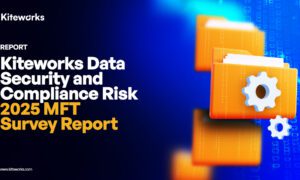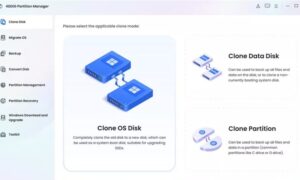With tax professionals increasingly becoming targets of scammers, safeguarding sensitive client data is critical. Tax preparers handle a wealth of personal and financial information that cybercriminals are eager to exploit. Implementing strong security measures is essential to protecting both the business and its clients. Optima Tax Relief reveals six key ways tax professionals can defend against scammers.
Use Anti-Virus Software
Anti-virus software is a foundational layer of defense against cyber threats. It helps detect and remove malicious programs such as viruses, ransomware, and spyware. Tax professionals should ensure they have updated, reputable anti-virus software running on all devices that store or access client data. Automated updates are important because cybercriminals are constantly developing new threats. Anti-virus software provides real-time protection, stopping suspicious activity before it can compromise data.
Implement Firewalls
A firewall acts as a barrier between your network and the internet, filtering incoming and outgoing traffic to prevent unauthorized access. It monitors network activity, blocks unwanted communications, and stops hackers from infiltrating your system. Firewalls can be hardware-based (installed on a router) or software-based (installed on individual computers), but many tax professionals use both for comprehensive protection. With a properly configured firewall, tax professionals can minimize the risk of cyberattacks that could expose sensitive tax information.
Enable Multi-Factor Authentication (MFA)
Multi-factor authentication (MFA) adds an extra layer of security by requiring multiple forms of verification before granting access to accounts or systems. For instance, after entering a password, a second factor like a one-time code sent to your mobile device or email is required. MFA reduces the chances of unauthorized access, even if passwords are compromised. Tax professionals should enable MFA wherever possible, especially for client management systems, email accounts, and tax software portals, as it drastically reduces the risk of data breaches.
Use Backup Software
Data loss due to cyberattacks, hardware failures, or human error can be disastrous for tax professionals. Regularly backing up data ensures that critical files can be recovered if lost or compromised. Backup software automates the process of creating and storing copies of data in secure, off-site locations. It’s essential to choose backup software that encrypts data during transfer and storage, ensuring the backup itself is protected from unauthorized access. Frequent backups not only protect data but also allow for quick recovery in case of a ransomware attack or other data-compromising events.
Enable Drive Encryption
Encrypting sensitive data on your computer’s hard drive adds another layer of security. Drive encryption scrambles the data, making it unreadable without the proper decryption key. This is particularly important for laptops or mobile devices, which are at higher risk of theft or loss. If a device is stolen, encryption ensures that client data remains inaccessible to thieves. Tax professionals should enable encryption for all devices that store sensitive tax or financial information.
Use a Virtual Private Network (VPN)
A Virtual Private Network (VPN) secures internet connections by encrypting data transmitted between your device and online resources. Using a VPN ensures that client information and sensitive communications are not intercepted by cybercriminals, especially when working remotely or using public Wi-Fi. VPNs are particularly useful when accessing cloud-based tax software or client portals, as they provide an additional layer of security to protect data in transit. Tax professionals should use a trusted, high-quality VPN to safeguard their internet traffic and prevent unauthorized access to their network.
Conclusion
Cybersecurity threats are evolving, and tax professionals need to stay one step ahead of scammers to protect their clients and businesses. By implementing anti-virus software, firewalls, multifactor authentication, backup software, drive encryption, and VPNs, tax professionals can significantly reduce their risk of falling victim to cyberattacks. Each of these measures strengthens the security framework, ensuring that sensitive data is protected from hackers and fraudsters. Tax professionals should also regularly review and update their security protocols to stay current with the latest cybersecurity trends and threats.
Read More From Techbullion



































